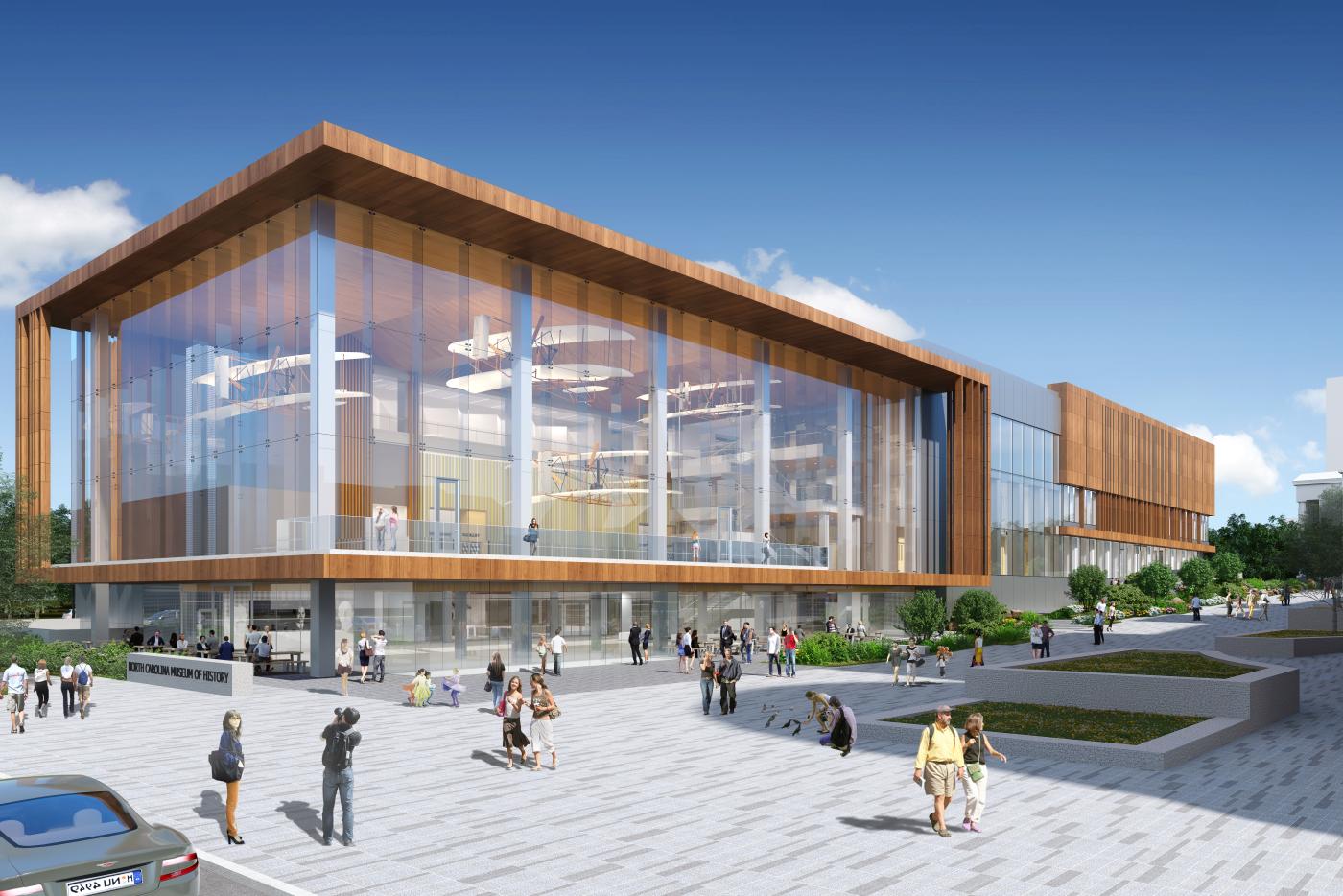The North Carolina Museum of History announced today that construction is underway on a transformative renovation at the museum building in downtown Raleigh. The project will expand the building by 40,000 square feet, including 25% more gallery space to showcase additional stories, artifacts, and voices from across the state. The museum is a division of the N.C. Department of Natural and Cultural Resources.
Upgrades will include a relocated entrance on the northside of Bicentennial Plaza for improved accessibility, new climate control systems to protect the museum’s 150,000+ artifacts, and critical infrastructure improvements such as leak repairs and a new freight elevator. Additional classrooms, a new restaurant, community spaces, and offices are also part of the expansion. These investments will preserve North Carolina’s history and provide a safe, modern facility for generations to come and ensure the museum can better serve our statewide community. The museum is on track to reopen to the public in 2028.
“This project is about honoring the trust North Carolinians place in us to care for their history,” said C.J. Roberts, director of the Division of State History Museums. “We’re building a space worthy of the stories, artifacts, and traditions that define our state—so they can be preserved and shared for generations to come.”
The museum continues to remain active statewide since closing its building in October 2024. During the renovation, staff will continue to offer statewide K–12 educational programming, share traveling exhibitions, and host public festivals and events.
The museum renovation received $180 million in funding, authorized by the North Carolina General Assembly. This generous investment from the state of North Carolina will enable the museum to modernize its facilities, enhance the visitor experience, and better serve communities across the state.
About the North Carolina Museum of History
The North Carolina Museum of History fosters a passion for North Carolina history. This museum collects and preserves artifacts of state history and educates the public on the history of the state and the nation through exhibits and educational programs. Before closing for renovation in late 2024, more than 465,000 people visited the museum annually to see some of the 150,000 artifacts in its collection. Located in the heart of downtown Raleigh, the North Carolina Museum of History serves as the flagship historical institution of the Division of State History Museums. The museum is currently closed for a major renovation and is scheduled to reopen in fall 2028. However, public programs, pop-up events, and exhibitions remain active and its statewide education outreach program—serving nearly 300,000 students and teachers—continues to serve all 100 North Carolina counties. More information is available on the museum’s website, ncmuseumofhistory.org. The Division, part of the N.C. Department of Natural and Cultural Resources, includes seven regional history museums dedicated to preserving and interpreting the stories of North Carolina’s past.
About the North Carolina Department of Natural and Cultural Resources
The N.C. Department of Natural and Cultural Resources (DNCR) manages, promotes, and enhances the things that people love about North Carolina – its diverse arts and culture, rich history, and spectacular natural areas. Through its programs, the department enhances education, stimulates economic development, improves public health, expands accessibility, and strengthens community resiliency.
The department manages over 100 locations across the state, including 27 historic sites, seven history museums, two art museums, five science museums, four aquariums, 35 state parks, four recreation areas, dozens of state trails and natural areas, the N.C. Zoo, the State Library, the State Archives, the N.C. Arts Council, the African American Heritage Commission, the American Indian Heritage Commission, the State Historic Preservation Office, the Office of State Archaeology, the Highway Historical Markers program, the N.C. Land and Water Fund, and the Natural Heritage Program. For more information, please visit www.dncr.nc.gov.

